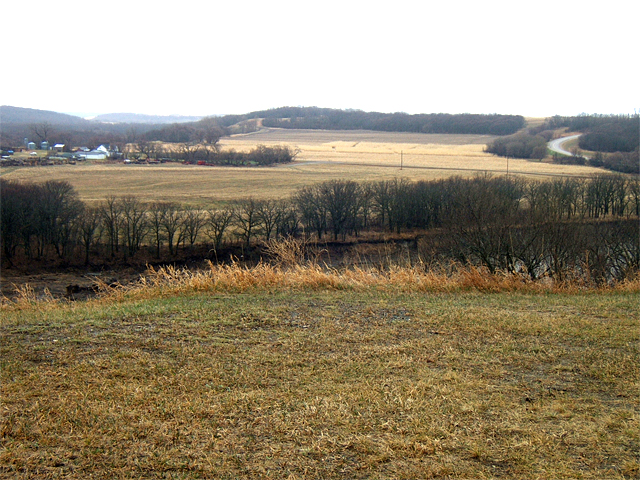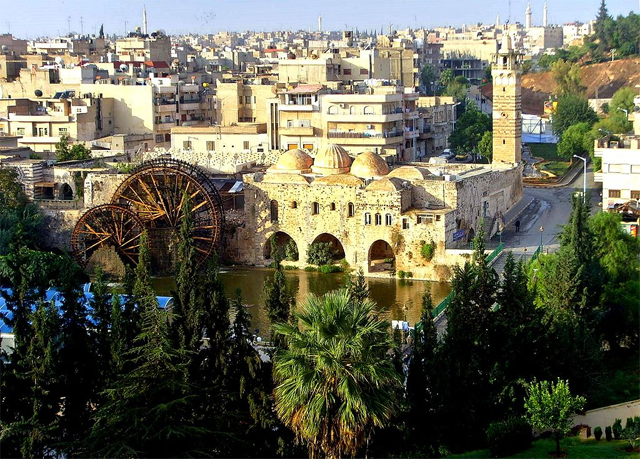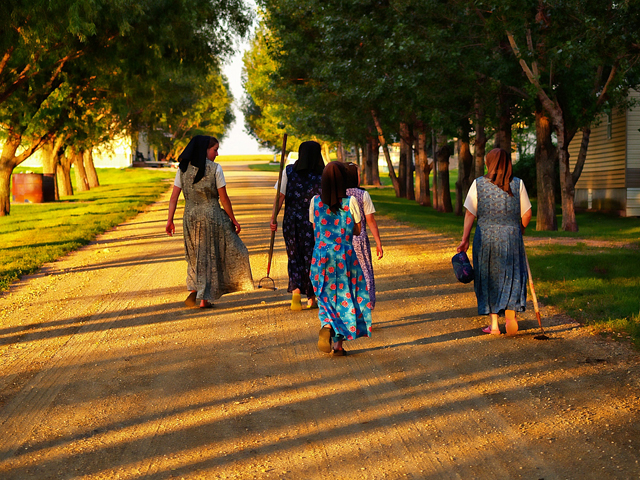Last year a Hutterite colony in Manitoba decided to sponsor a Syrian refugee family and they have been rewarded with a warm friendship that has rapidly grown stronger. A news report published last week on the website of the Office of the United Nations High Commissioner for Refugees (UNHCR) told the engaging story of the new Muslin family in the community and their friends, the Hutterites.

The sponsoring colony was not named by the two journalists who wrote the article, but another source identified it as the Green Acres Colony near Wawanesa, a small community 20 miles southeast of the city of Brandon, Manitoba, and about four miles north of the international border with the U.S. The idea of sponsoring a refugee family came to Paul Waldner, an educator at Green Acres after a visit from a German teacher who urged him to consider helping refugees from Syria.
Mr. Waldner gained the support of his father, the President of the colony, who gave his approval and told him, “Our ancestors were refugees long ago—people were always there to help them.” Waldner also got support from his wife Wanda, from another member of the colony, Elaine Hofer, and from a refugee couple from Bosnia who had resettled in Wawanesa about 15 years ago, Enes and Fata Muheljić. When the Bosnian couple looked over the papers about the proposed Syrian family, they were convinced they were right for Wawanesa. They saw themselves in the Syrians.

The Syrian family, Najwa and Reyad Al Hamoud, had originally come from the city of Hama, Syria. Najwa had taught in an elementary school and her husband, Reyad, had done construction work. They had fled their home for Lebanon only 10 days before it was destroyed by a bomb. They had endured, with their two children, three years as refugees in Lebanon and were about to try the escape route across the Mediterranean when they learned that their application for resettlement in Canada had been approved.
The Hutterites took a van to the Winnipeg airport to meet their refugee family. Elaine Hofer, a member of the greeting party, said, “When [the Al Hamoud family] came down the escalator [at the airport], I started to jump I was so excited.” Najwa was excited too—and nervous about how they would fit in with their new country. She knew that the Hutterites continued to speak their German and that Canada encouraged people to preserve and cherish their own traditions.

She continues to wear her hijab, so when she saw that the Hutterite women were wearing distinctive dresses and headscarves—“preserving their heritage and their origins,” as she saw it—she felt reassured and happy. “A country doesn’t change anyone,” she told the reporters. “If one changes, it’s from the inside.”
Paul Waldner’s daughter Kayla was one of the colony members who was reserved about the whole idea of assuming sponsorship of a refugee family. It might harm their family life, she had thought. The Syrians had arrived in February of 2016 but the bleak winter soon gave way to the growth of spring. They began sharing garden produce. The Hutterites and the Syrian family kept visiting and helping one another and grew closer as friends. When Kayla gave a graduation speech a few months later, she told her audience she was amazed at how the Syrians could have “snuggle[d] their way into my heart” so effectively.
The Syrian family then moved to Brandon to be closer to jobs and schools but they continued to visit their friends at the colony, only a half-hour drive away. The Hutterites kept up the visiting as well. When a third child was born to Najwa in a Brandon hospital, the colony responded immediately to her text message that the baby girl had just been born and flocked to be with her. She told her Hutterite friends that she and her husband had named the girl Janna. It was the Arabic word for “paradise.” It fit their feelings about the section of Manitoba where they had found refuge. Elaine was amazed that the baby’s name could so capture both the Arab world and the Canadian prairie.
A video posted on YouTube on September 2, 2016, by the Mennonite Central Committee tells the same story about the Green Acres Colony and their sponsorship of the Al Hamoud family, though without, yet, the birth of the baby girl. The spirit of Paul Waldner’s father—that we all were refugees at one time so we need to help them out—comes through in the video as well as it does in the news report. Paul Waldner commented in the video that the Syrians looked scared as they came down the escalator at the airport last February—“and I actually felt the same way,” he admitted honestly. The Hutterites were welcoming total strangers after all.
If this story about the Hutterite colony welcoming refugees should reach supporters of the new (as of tomorrow) president of the United States, it might help moderate the xenophobia toward immigrant groups that has grown in the U.S. and other countries over the past few years.